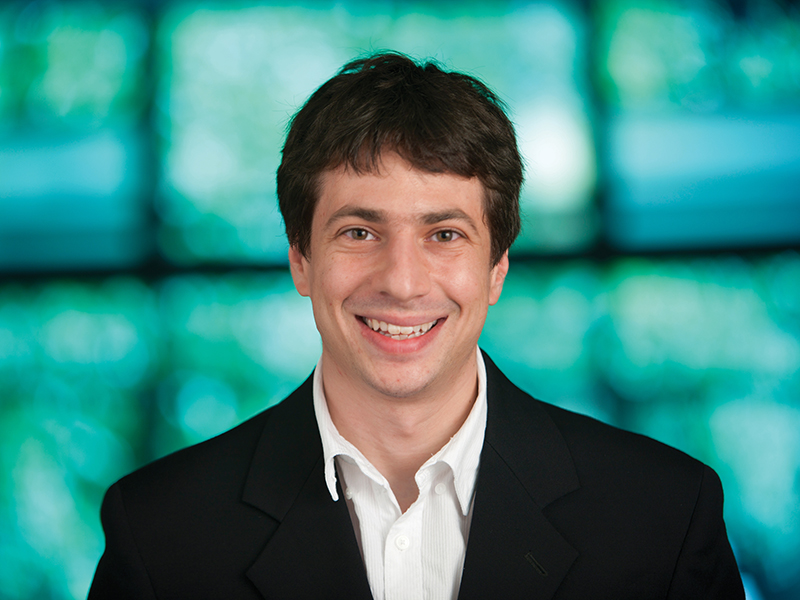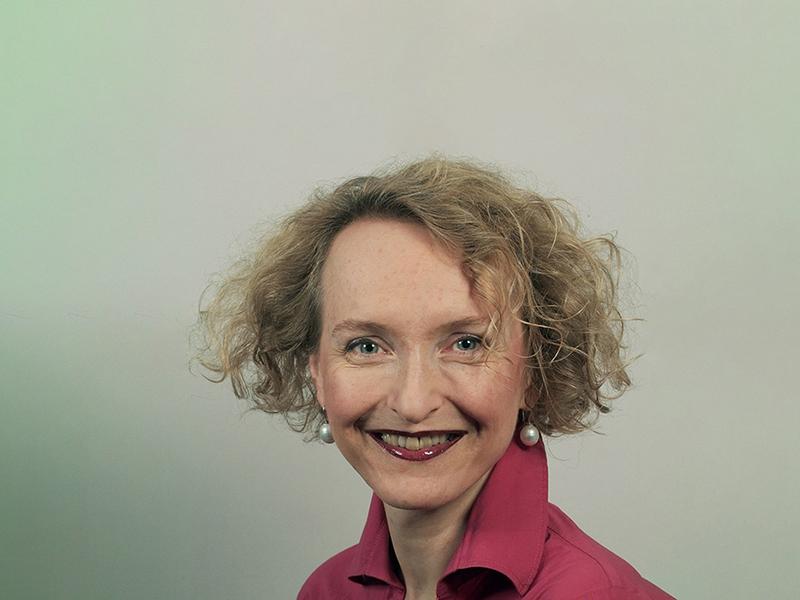Hans Sigrist Prize
Aaron Roth: Pioneer of fair algorithms
In December 2023, the most highly endowed prize of the University of Bern will go to the US computer scientist Aaron Roth. His research aims to incorporate social norms into algorithms and to better protect privacy.

"There are researchers who sit down and take on long-standing problems and just solve them, but I am not smart enough to do that," says Aaron Roth. "So, I have to be the other kind of researcher. I try to define a new problem that no one has worked on yet but that might be interesting."
Aaron Roth's own modesty may stand in the way of understanding the depth of his contributions. In fact, when he authored his doctoral thesis on differential privacy about 15 years ago and then wrote on the fairness of algorithms a few years later, terms like “Artificial Intelligence” and “Machine Learning” were far from being as firmly anchored in our everyday lives as they are today. Aaron Roth was thus a pioneer, laying the foundation for a new branch of research.
Avoiding biases and protecting sensitive data
"I am interested in real problems. Issues like data protection are becoming increasingly important as more and more data is generated and collected about all of us," says Aaron Roth about his research during the Hans Sigrist Foundation’s traditional interview with the prize winner. He focuses on algorithmic fairness, differential privacy, and their applications in machine learning and data analysis.
About the person
Aaron Roth is a Professor of Computer Science and Cognitive Science at the University of Pennsylvania. His main interests are in algorithms and machine learning, particularly in the areas of private data analysis, fairness in machine learning, game theory and mechanism design, as well as learning theory.
Algorithmic fairness is about ensuring that algorithms do not reinforce biases against certain groups of people. For example, without careful design, an algorithm that evaluates application materials for a job posting could unintentionally favor applicants from certain demographic groups based on historical data that reflects past biases.
«His outstanding work […] helps both society and individuals maximize the benefits of using Data Science, while simultaneously controlling negative side effects.»
From the laudation for Aaron Roth on the award of the Hans Sigrist Prize at the University of Bern’s 2023 Dies academicus
Differential privacy is a mathematical method, which ensures that privacy is maintained when analyzing large data sets while still extracting useful general information. Assuming you take a large data set and carry out a certain analysis on this data set twice, once with the data of person X and once without this data, then "there should be no statistical test that can distinguish between these two analyses," Roth explains. Data from clinical studies, for example, can be aggregated in such a way that the statistics do not reveal any sensitive information about the study participants.
A signal for the University of Bern
"It is important that more attention is paid to these topics," says Mathematics Professor Christiane Tretter, chair of this year's Hans Sigrist Prize Committee. Tretter says that many people perceive fairness and algorithms as two completely different poles, situated in different disciplines and incompatible with each other. "It is fascinating that Aaron Roth’s work shows that this is not a contradiction."

Aaron Roth's research in this year's prize area "Data Science: the Power of the Human Mind for the Sake of Humankind" fits in very well with the current efforts at the University of Bern to tackle digitalization in both an interdisciplinary way and as part of the social transformation. These efforts include the "People in digital transformation" sub-strategy of the University of Bern's Strategy 2030 and the university-wide Bern Data Science Initiative BeDSI. "We want to take on projects across faculty boundaries. Having Aaron Roth as a prizewinner sends a very good signal to the university and beyond," says Christiane Tretter.
From awareness to action
The first step to improving the analysis of large data sets is to be aware of the problem: "We need to realize that data analysis can be problematic. Once we agree on this, we can consider how we can solve the problems," says Aaron Roth.
When asked what he plans to use the prize money for, Aaron Roth replies: "It is important to build a research community in this area. Funds from foundations such as the Hans Sigrist Foundation are particularly valuable towards that goal."
HANS SIGRIST PRIZE AND HANS SIGRIST SYMPOSIUM
Each year, the Hans Sigrist Foundation Board selects the prize field from proposals made by the faculties at the University of Bern. The prize is awarded in recognition of research achievements and based on the promise of future contributions. Winners use the 100,000 CHF prize to fund further research in the prize field. Two earlier Hans Sigrist Prize winners have gone on to be awarded the Nobel Prize.
DIES ACADEMICUS 2023
Prof. Dr Aaron Roth will receive the Hans Sigrist Prize at the Dies academicus of the University of Bern, which will take place this year on Saturday, 2 December 2023, at the Casino Bern at Casinoplatz 1.